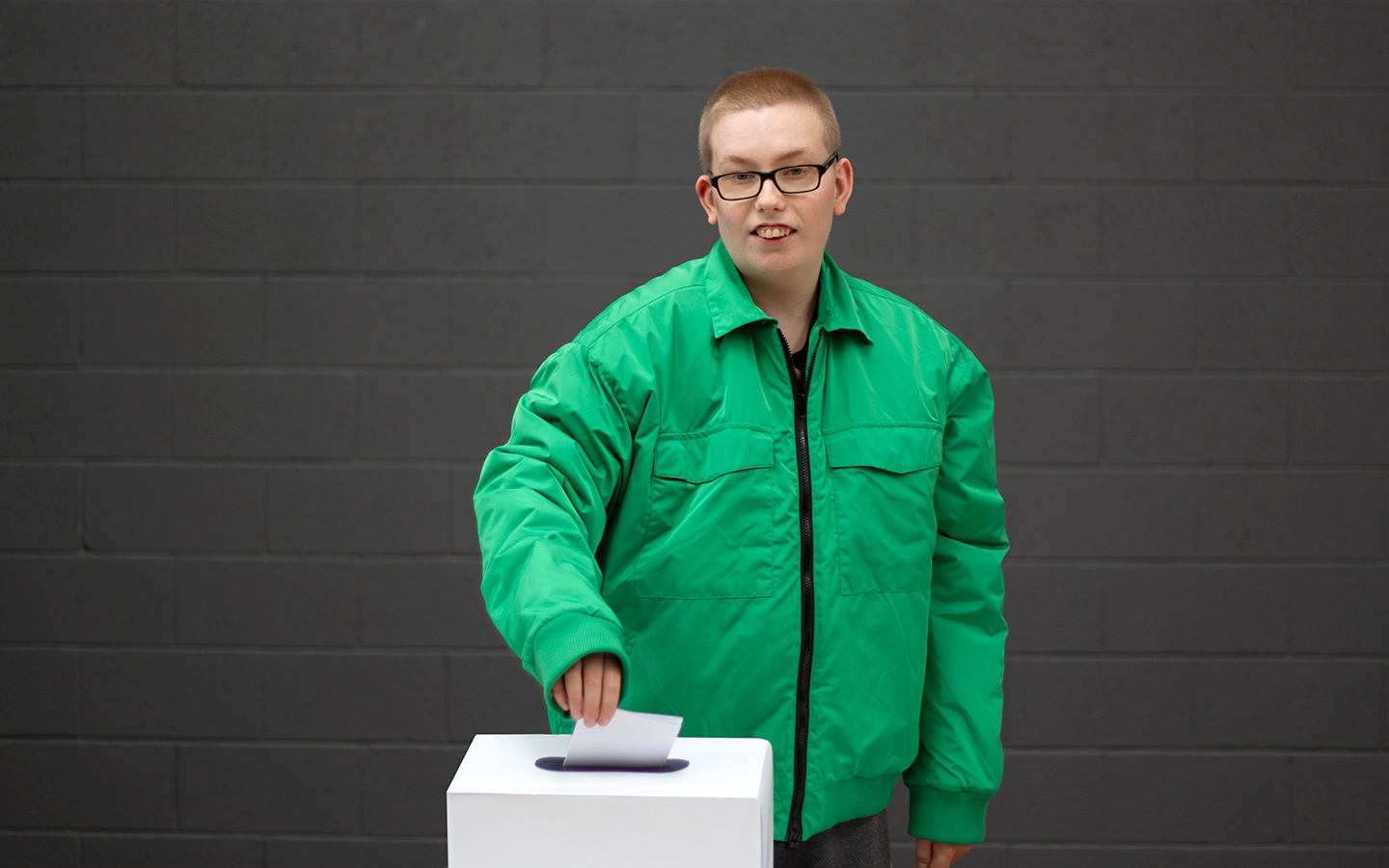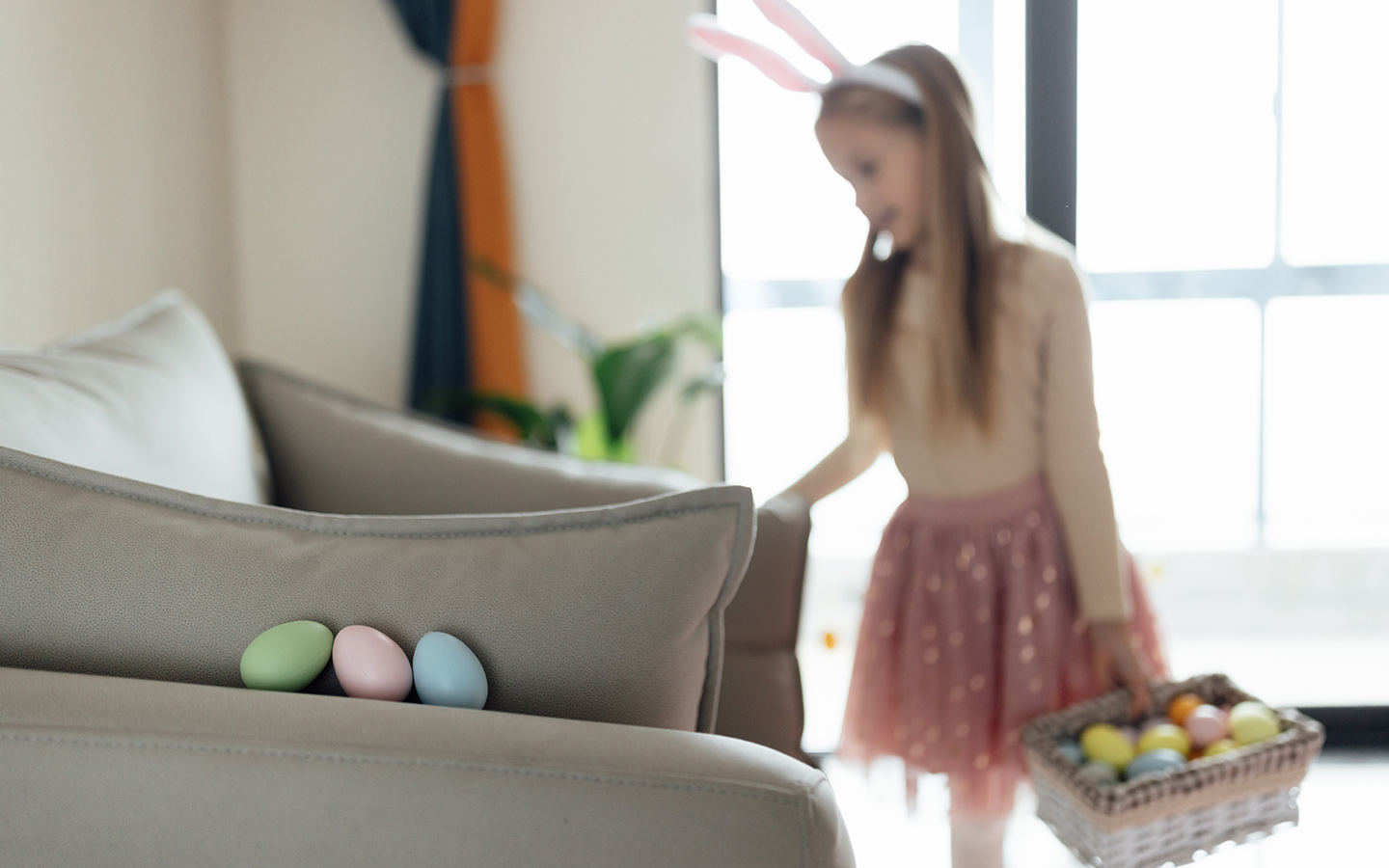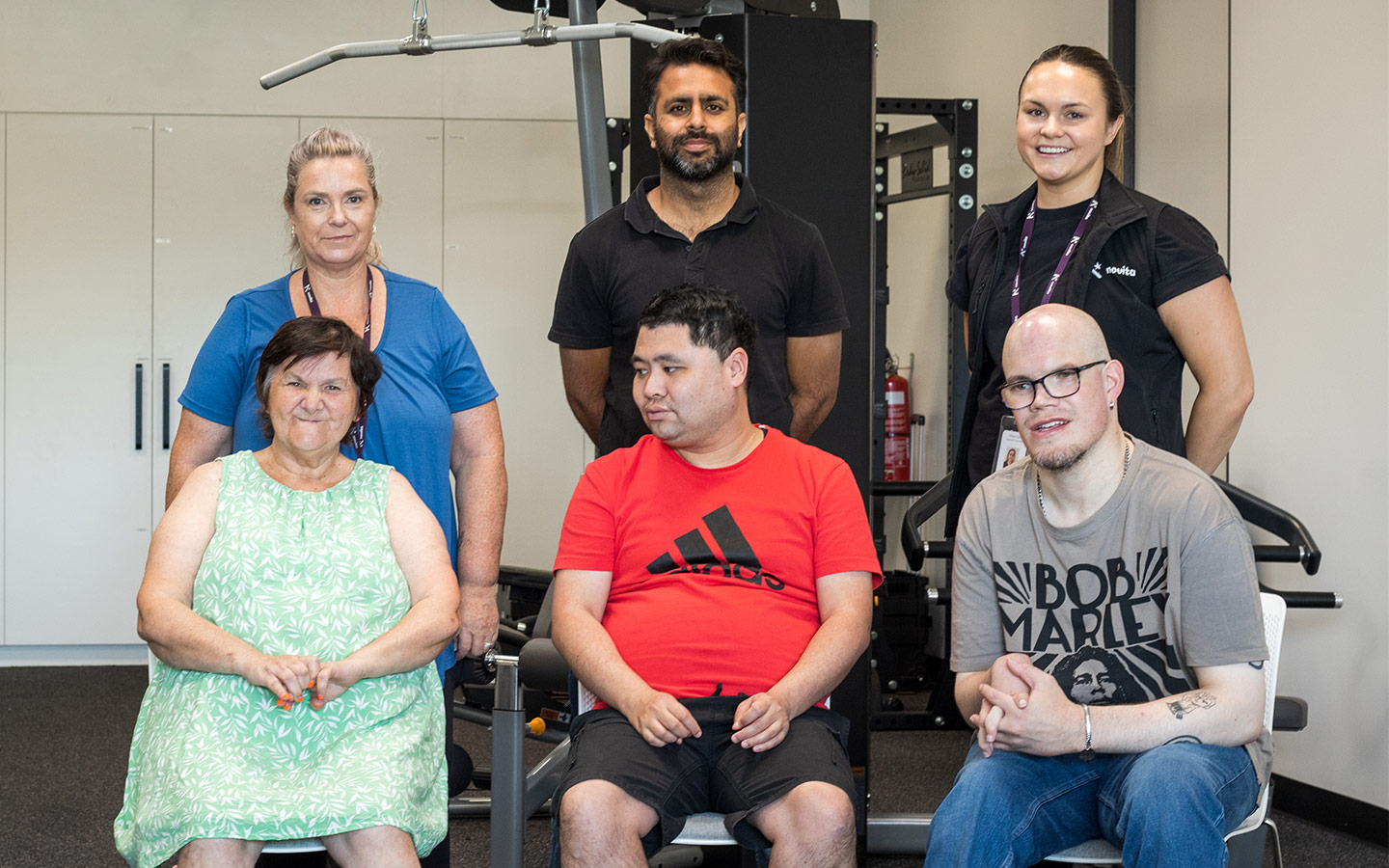Helpful Information
A guide for teaching kids to be a good sport from the start
access_time15min read
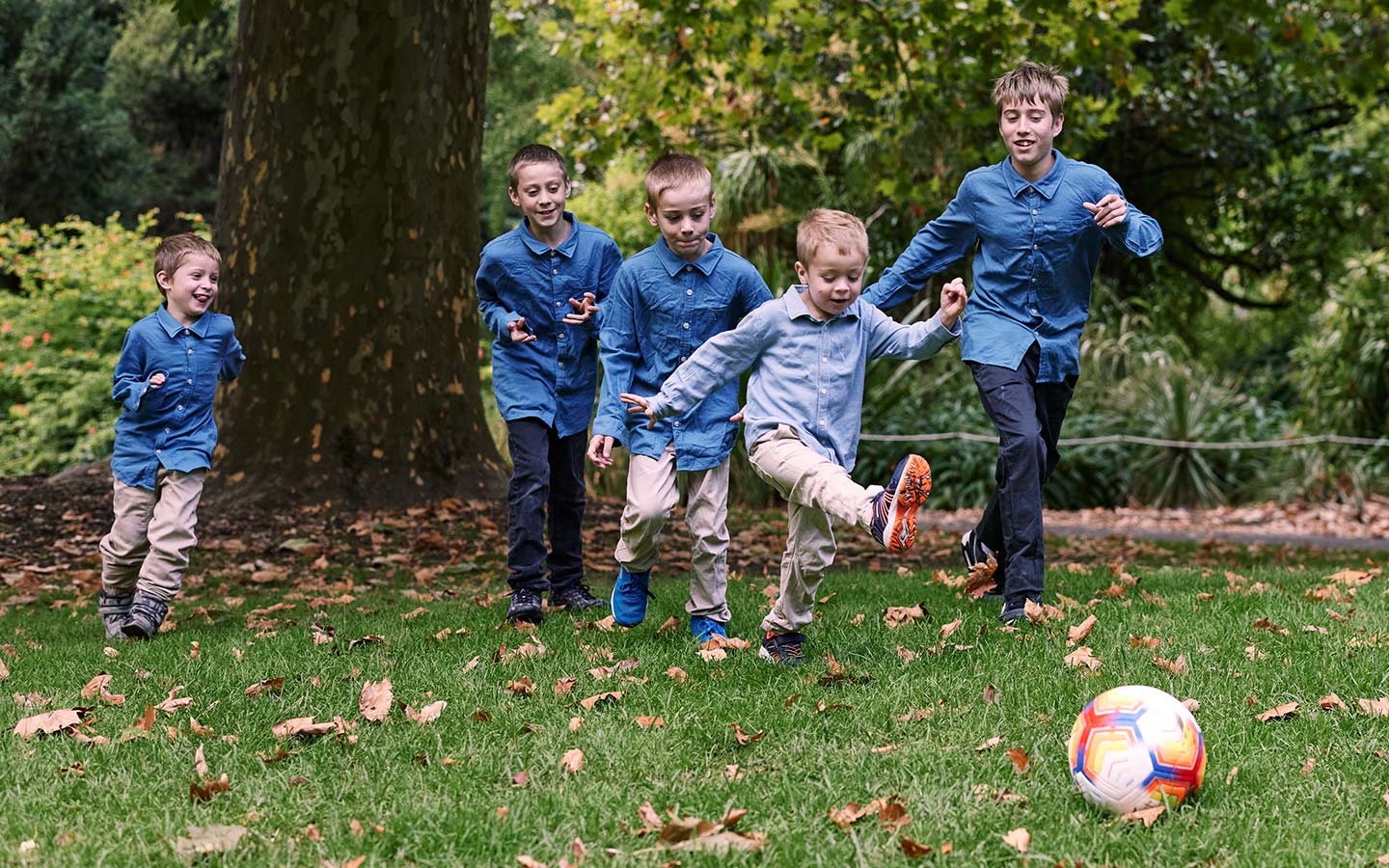
For some kids living with disability, getting started in sport can take a little extra time – and that’s okay. There are so many new skills to learn and practise, as well as a whole new set of social rules – like being a good sport and what that means.
Kids learn by observing the behaviour of the adults in their life. This means parents, carers, coaches, and support workers all play an important role in showing kids how to be a good sport.
Taking the time to understand a game and teamwork can greatly benefit their participation too – both on and off the field.
Here are 7 opportunities that you can provide to support kids to get started in sport while also being a good sport:
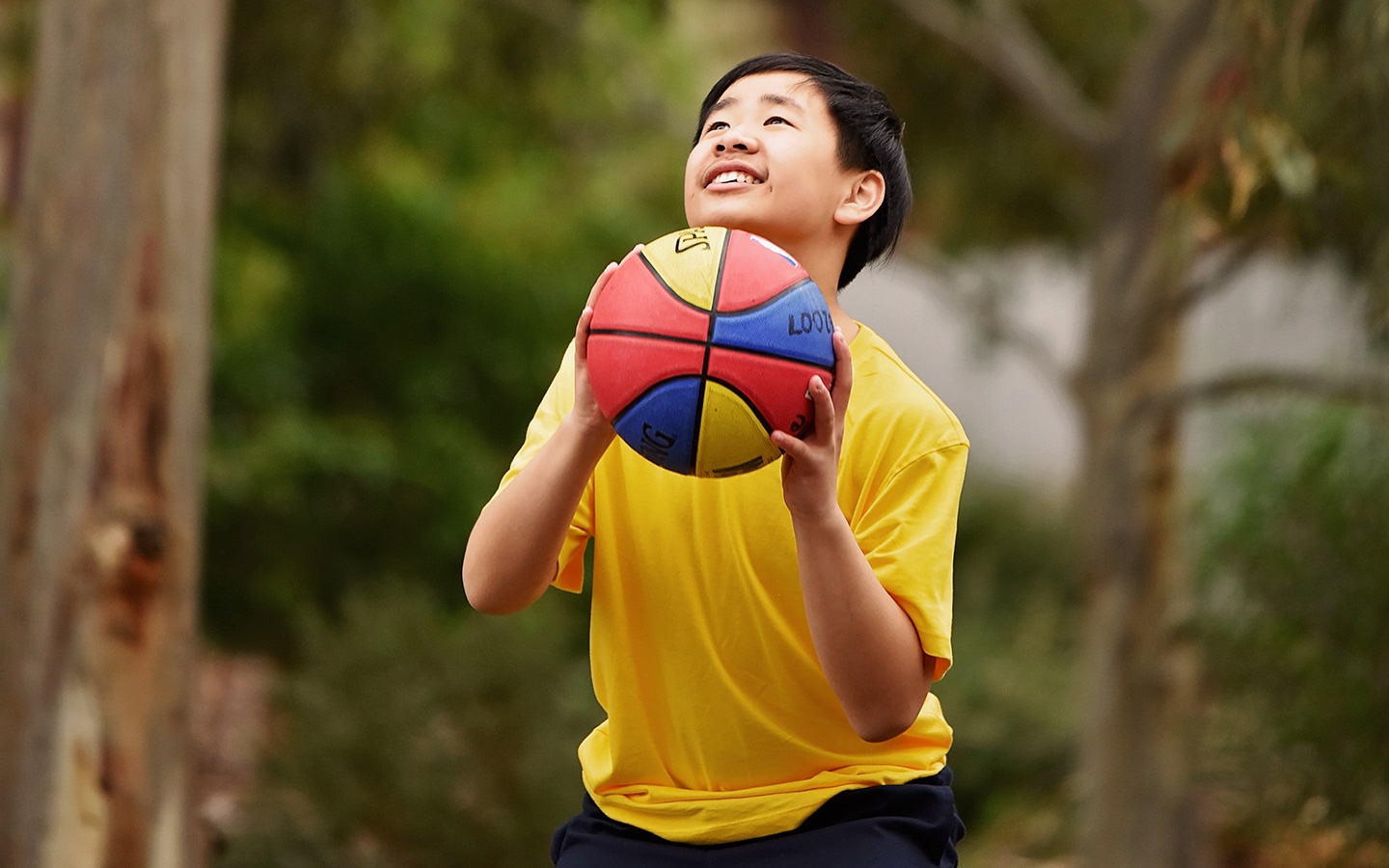
1. Talk about sport
And what really matters...
It’s not all about winning and losing. It’s easy to focus on this aspect of sport, but there is so much more to learn.
Teaching your kids what to say and how they might respond when the game doesn’t go their way can support them to develop their resilience, plus their team skills. Saying something like “Good game! You played really well. I’ll try harder next time.” Or “I had fun playing with you. Let’s play again soon!” can be a great place to start.
Talking about what they find fun in sport can support them to focus on the little wins during the game too. For example, “That kick went SO FAR!!”
Discuss that winning or losing is not as important as playing the game and trying their best, developing their skills, having fun, and making friends with the other kids by being a good sport.
2. Lead by example
Role model getting involved and having fun...
Kids learn through watching, listening, and copying. Therefore, it’s important that you show your kids what participating well in sport can look like. You can do this by playing games together at home and taking this opportunity to practise the rules of the game and how to have fun while being a good sport.
Here are some examples of phrases you can use:
- “I can’t wait to practise my skills for next time”
- “I’m proud of myself for working hard today”
- “I had a lot of fun playing with you”
- “I thought it was awesome when you scored that goal”
It is important for you to practise this outside the home too – such as on the sidelines of your kid’s sporting match or at a game’s night with friends – as kids are always absorbing information.
You could also discuss leading by example with your kid’s therapist, if they have one, and request that they intentionally incorporate positive self-talk during games into their therapy sessions.
3. Ask about the game
Instead of the outcome...
By asking your kid about other aspects of the game, rather than the result, you are showing them what really matters. You could ask, “Did you have fun?” “What do you think you did well at today?” Or “Who did you enjoy catching up with?”
Praising your kid for their hard work and self-reflection will teach them that they do not always have to win to have a successful day. Quickly, this will build their confidence and self-esteem and can increase their ability to combat the different emotions that can come with participating in sport.
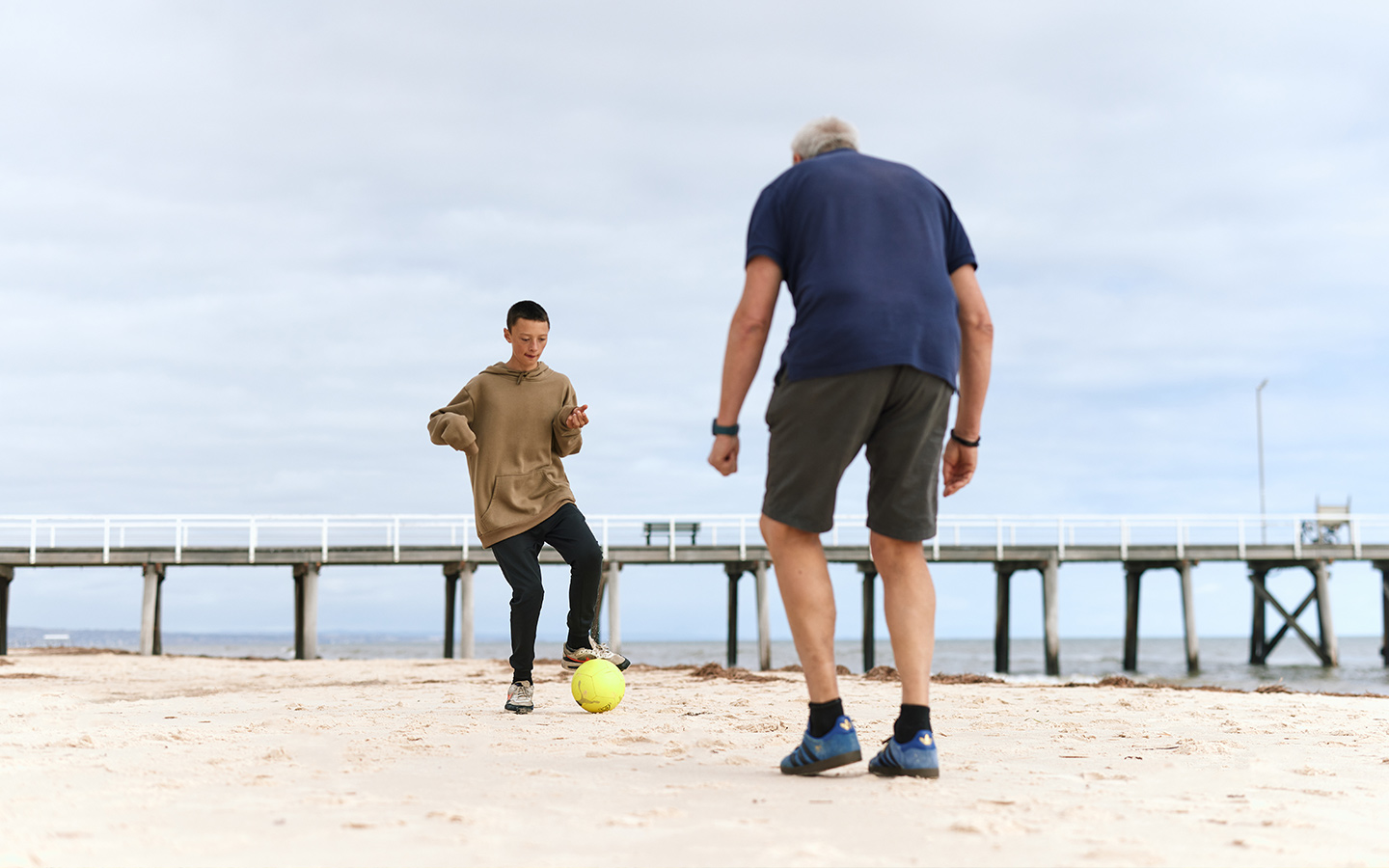
4. Point out good sportsmanship in others
Provide them with examples...
If your kid has a favourite athlete or sporting team, you could find stories of them demonstrating how to be a good sport for inspiration.
If your kid doesn’t have an athlete they look up to, you could help them find one, perhaps someone who lives with disability, who demonstrates how to be a good sport.
Here are 3 examples of famous athletes who live with disability:
- Dylan Alcott – Professional Wheelchair Tennis and Basketball Player
- Matthew Cowdrey – Paralympic Swimmer
- Alix Louise Sauvage – Paralympic Wheelchair Racer
Use this as an opportunity to build your kid’s confidence and self-esteem by showing them that many people living with disability play sport and inspire others – and they can too!
5. Respect the rules
And the people in charge...
Being included and a good sport is not only about how your kid responds to winning or losing, but also about respecting the rules during the game. Talk to your kid about the importance of accepting decisions, being honest, and not arguing with the people in charge.
Pro tip – building ‘turn taking’ skills can increase their ability to follow rules. For example, playing backyard cricket with your kid is a great sport for practising turn taking. As you rotate positions – from batting to bowling to fielding – your kid is learning to follow the rules of the game, even if they would rather stay in their favourite position. Remember though, it’s important to pick your battles… playing sport is supposed to be fun!
6. Celebrate victories with others
Team work makes the dream work...
Winning gracefully is a big part of learning how to be a good sport. One way you can encourage this is by creating opportunities for your kid to celebrate their successes with others. After a victory, you could arrange a team lunch or ice-cream celebration, whilst reminding them that ‘teamwork makes the dream work’. Be sure to develop a culture where all team members are congratulated equally, rather than singling out the best performers. By doing this, your kid will begin to recognise that every player is important and mimic this behaviour amongst their fellow team members.
If your kid plays an independent sport, encourage them to socialise with the kids they train with or compete against. Remind them that their opponent can be both their friend and their competitor. Learning how to make friends with their opponent will increase their social skills and ability to interact with other kids at school and outside the home.
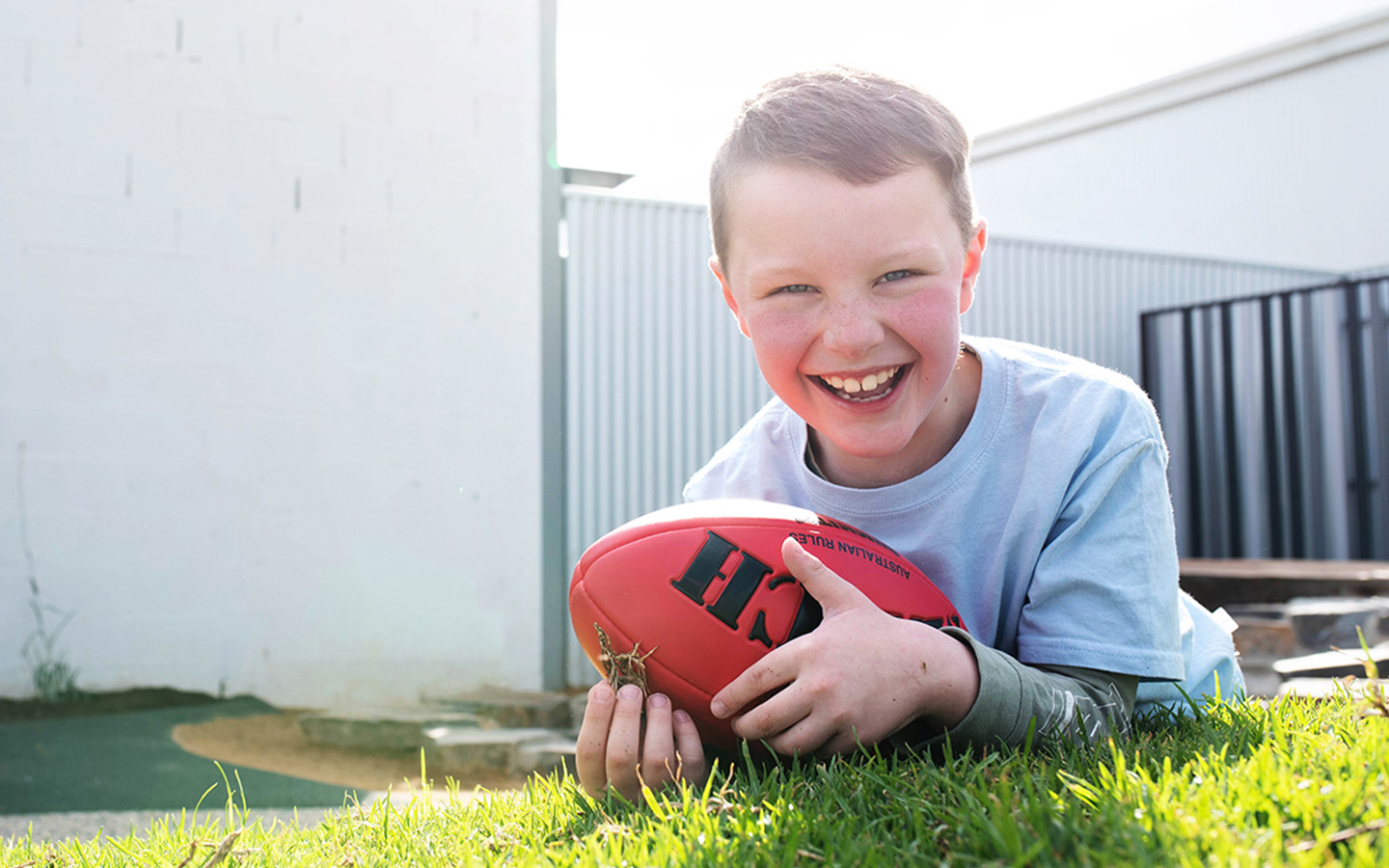
7. Tailor learning to your kid’s learning style
As well as their personality...
Understanding your kid’s personality will help you find the most effective ways to support their participation in a game while remembering what’s most important – having fun while being a good sport.
Rather than focusing on winning the game, set goals with your kid for personal improvement, and work towards them together.
Spend some time understanding all the emotions that can come from playing sport. Sometimes we feel ‘big feelings’ during competitions and supporting your kid to notice when emotions are running high can teach them what to do to get back in the game in a positive way – perhaps by taking 10 deep breaths, a five-minute walk, or counting down from 20 to self-regulate.
Remember, sport is fun! For more information on Novita therapy groups, that teach how to be a good sport, please contact our Customer Experience Team on [email protected] or call 1300 668 482.
